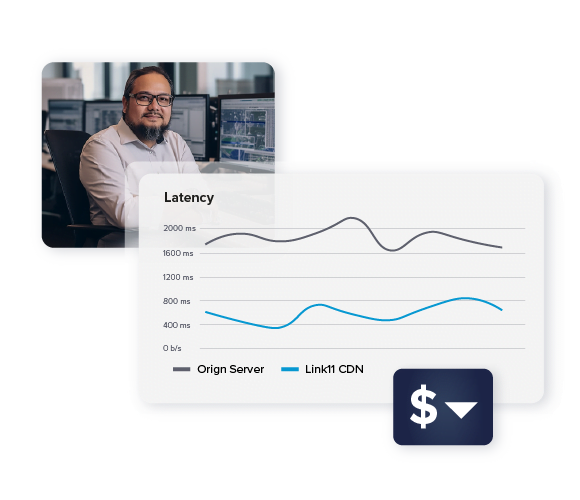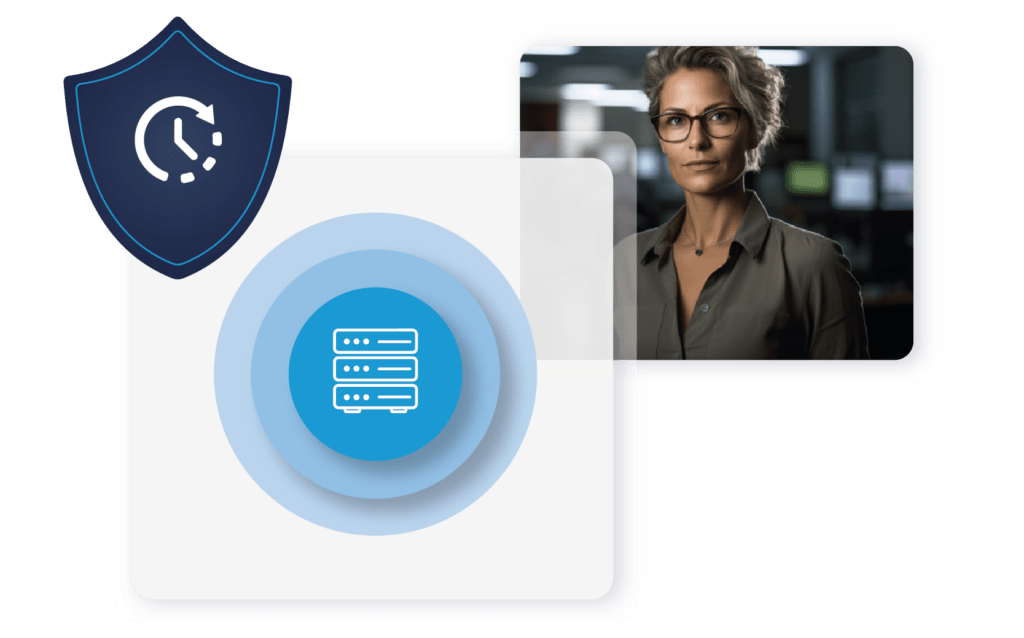Secure CDN
- Fast content distribution incl. Live-Streaming & VoD
- Extra protection layer for enhanced security
- 100% GDPR compliant

Accelerate your content with our globally distributed Multi-Terabit CDN network with 40+ POPs and GeoDNS to connect to the nearest node.
Increased security for your content: Our CDN nodes are secured against Layer 3/4 DDoS attacks by Link11 filter clusters.
Headquartered in Europe, we meet the highest security and data protection requirements and fulfill all your compliance requirements.
Increase your conversion with our global CDN infrastructure to speed up your website load times and provide the highest streaming quality to your customers. Through improved loading times, it has been shown that conversion rates can be improved up to 2,5 times. You also benefit from the highest possible security and compliance for your content. Secure CDN combines all the benefits in one innovative solution.
Thanks to the low latency connections and short node paths, your customers can access your content quickly and easily anywhere in the world. At the same time, your company also saves costs, as your hardware infrastructure has to process significantly less load.
Our efficient data compression shortens loading times even further and saves you money by reducing the size of the transferred data. Numerous settings for caching behavior allow you to further optimize the precise use and improve the cache hit rate.

Without a CDN, users have to connect directly to your Origin server, which often involves extremely long distances. This increases their connection time and negatively impacts your performance.
The Secure CDN speeds up your connection thanks to numerous distributed points-of-presence (PoPs) worldwide. Now, you don’t have to connect to the Origin server, but you can use the PoP entry point to save time. Link11 has 40+ PoPs at almost all global business hubs, so the nearest dial-in point is never far from you.
The additional Layer 3 & 4 protection of the CDN nodes ensures continuous uptime so that you always benefit from the advantages of a CDN. The risk of a DDoS attack on these layers is minimal. The CDN can continue distributing your content even if the origin server doesn’t respond.
Moreover, you can seamlessly integrate the CDN with our other security solutions, such as Layer 7 DDoS protection, Zero Touch WAF, or Bot Management, to get maximum protection at all layers.

With Access Control, you always control who can access your content in the CDN nodes’ cache using features such as Geo-Blocking, IP blacklists, and IP whitelists. This gives you quick and easy flexibility to further enhance the security and compliance of the CDN solution.
Geofencing, in turn, allows you to selectively choose which CDN nodes to use for delivering content to users to prevent content from being stored in unintended locations. This can be done on a country-specific and regional level – perfect, for example, if your focus is on absolute compliance with strict European data protection guidelines.

With the Link11 WebGUI, you can set exactly which CDN nodes should be selected for content delivery. This helps you define exactly where content should be stored – and, at the same time, safeguards you if you place a particular emphasis on a privacy-compliant approach.
Our global Link11 Fast Path topology with a dedicated Layer2 backbone provides a fast network interface to connect from anywhere. We are present on all continents in all major business centers, so the connection distances for you and your users to the CDN network are as short as possible.
Our top priority is working with you to find the solution that ideally fits your ideas. Only a fitting solution is a good solution!
Speed and reliability are essential with a CDN. Thanks to our global network, you are never far from the nearest access point.
Although our CDN solution can be used independently without compromise, we offer additional product building blocks for encompassing security.
Fully compliant according to the strict EU data privacy laws. Also, ISO 27001 is certified and officially qualified for the CRITIS sector by the Federal Office for Information Security (BSI).
Our experts are available around the clock to assist you in English and German. We take as much time for you as you need.


“Our customers should be able to access their content quickly and securely – regardless of their location. The global CDN infrastructure provided by the Link11 Secure CDN offers exactly this and has been specifically adapted to the customer’s individual needs. Thanks to geo-fencing it also complies with the European data protection guidelines.”
Lead Client IT
PIA UDG
Together, we will create a customized solution for your content delivery network. Our security experts will happily support you and advise you without obligation on the benefits of our Link11 solutions for your company.